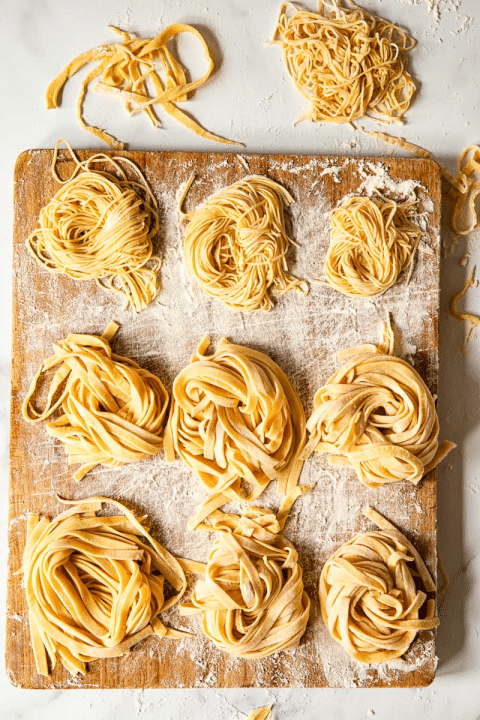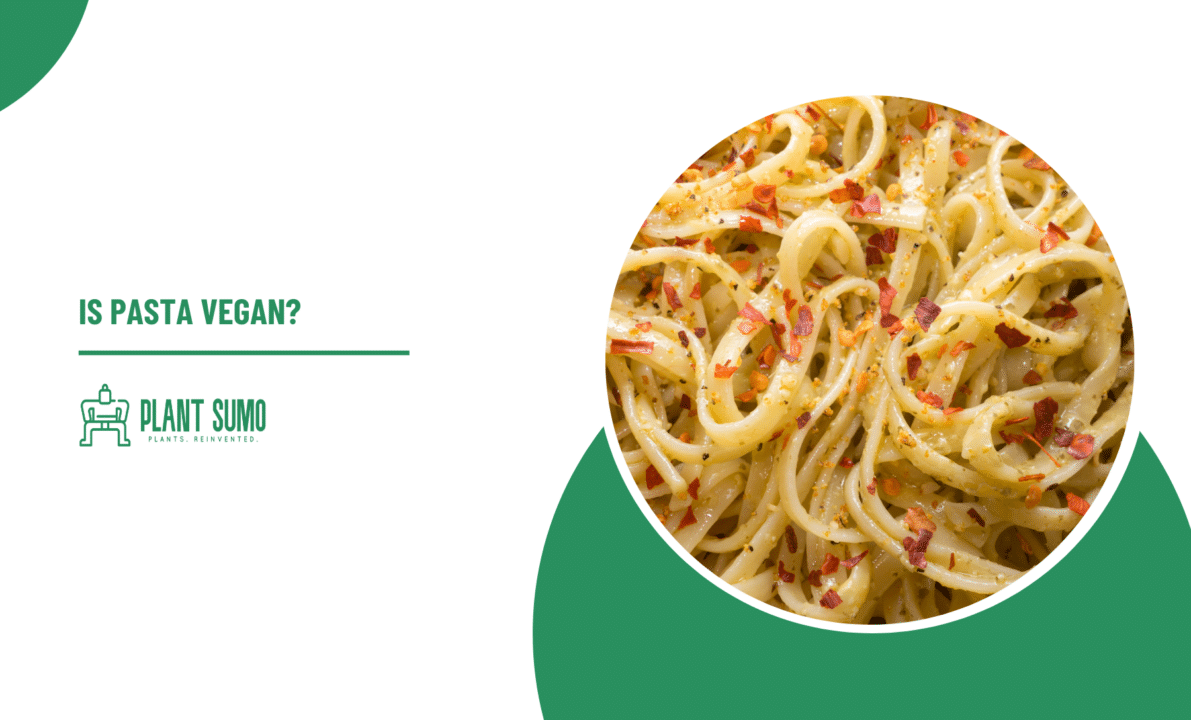Today, most pasta can be considered vegan, just like bread. Pasta is made from grains, making it a vegan food. Some pasta varieties, however, contain animal-derived ingredients. When looking for vegan pasta, it is crucial to be cautious about its ingredients.
In most supermarkets, you’ll find vegan dried pasta in packets. However, boxes of dried lasagna sheets are the exception. You will likely find eggs in these.
It is usually not vegan to buy fresh pasta from the chilled aisle at your local supermarket since it is usually made with eggs.
What is the difference between vegan and non-vegan pasta?
You can find out if pasta is vegan-friendly by checking the ingredients list.
It is not always the case that supermarkets label their packaging as vegan, but some do so. To find out if there are any allergens, look at the ingredients and look for ingredients like milk and eggs.
In the UK, these ingredients must be listed in bold and should be distinguishable from other ingredients. However, there is a possibility that some animal-based ingredients, like squid ink, which is used to dye the pasta, may not be encouraged.
Whenever you’re in a restaurant, ask the waiter about the ingredients or allergens in their pasta dishes. Should the pasta contain animal-based ingredients, the staff should be able to suggest vegan alternatives.
Homemade Fresh Pasta without Eggs

Eggs function as a binder and colourant for finished pasta products, which have traditionally been made with eggs. Consequently, a lot of fresh pasta on supermarket shelves and in delicatessens, as well as those available at traditional Italian restaurants, will contain eggs, whatever their shape may be.
To make an eggless pasta dough, prepare the following ingredient:
- All-purpose flour
- Water
- Olive Oil
Simply mix the three ingredients together and knead just like regular pasta. This recipe does not require a pasta or noodle machine. You must be able to flatten the pasta with a rolling pin and cut in desired size.
This vegan pasta recipe is very delicate, and it would cook within 1 to 2 minutes. For an al dente pasta, consider the pasta done when it started floating to the top of the water.
Storing Vegan Pasta
There are various ways to store your homemade vegan pasta.
For storage in the fridge, simply cover the fresh vegan pasta and store it for up to three days.
If you prefer storing your pasta dry, you let it air-dry naturally for 24 hours or until it achieves a cracker-like texture. You can store the pasta at room temperature in an airtight container for up to 1 month after it has been dried.
Extra pasta can be stored in the freezer if you have any leftovers. For longer shelf life, freeze the mix in an air-tight container for up to 8 weeks.
Conclusion
Pasta is a very delicious yet simple food. It is widely available in the market, and surprisingly, a lot of these are 100% vegan.
If you are hesitating to buy a boxed pasta, you may make one at home using simple ingredients. Pasta is a versatile meal, so pair it with your favourite sauce and let us know how it went in the comments!
FAQs
Which types of pasta contain eggs?
Typically, only fresh pasta from the fridge section of the supermarket contains egg. If you are looking for a vegan pasta, make sure to check if your pasta contains other dairy products too, as some pasta may contain milk.
Can vegans eat pasta?
A wide variety of pasta is vegan-friendly. Vegans may enjoy their pasta guilt-free as long as it does not contain egg or other dairies.
Does dry pasta contain egg?
Dry pasta rarely contains egg. It is usually the fresh pasta that has egg in it. However, not all boxed pastas are dairy-free. Some boxed dry pasta, especially those that comes with a packed sauce, may still contain eggs and dairies. Always check the ingredients list if you have allergens or a specific diet to follow.





